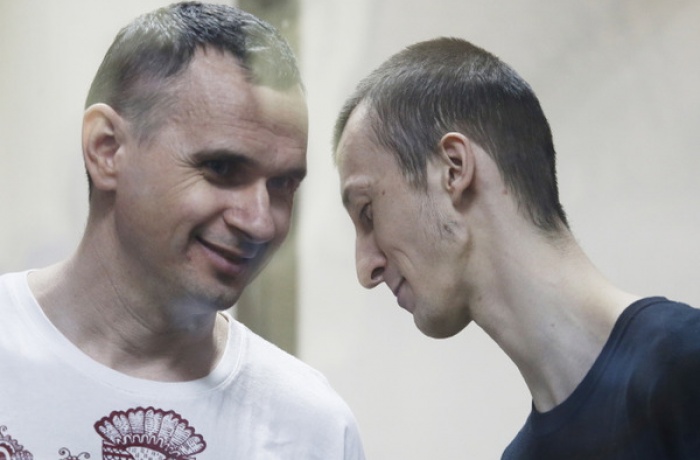
Organisers: Hromadske.TV
The Ukrainian filmmaker Oleg Sentsov and activist Oleksandr Kolchenko were arrested in Crimea on 10 May 2014 and charged with preparing terrorist attacks. Kolchenko was sentenced to 10, and Sentsov to 20 years in prison. Sentsov and Kolchenko were kept in a pretrial jail in Moscow, tried in Rostov, convoyed to the Urals and then as far as the Russian Arctic. Between the two of them, they travelled almost 20,000 kilometres, that is, halfway across the globe. For them, the journey was only within Russia, and only between prisons. Hromadske’s film crews visited the key locations on their way, and learned about the conditions of their imprisonment and the people in charge of their lives, in places where Ukrainian consuls were never allowed and which attorneys still have a hard time reaching.
Over 90 prisoners of the Kremlin are now being held in Russian prisons, including Ukrainian sailors who are prisoners of war. In 2018, the world watched Oleg Sentsov’s hunger strike, and Ukrainian human rights advocates fought for the attention of the leaders of the most influential states, striving to free Sentsov and other political prisoners. However, even after these events, more Ukrainian citizens have been captured, including prisoners of war. In these 5 years, it has become clear that despite the efforts of individuals, human rights advocates and the Ukrainian state, there is no systematic and effective mechanism for freeing these prisoners or helping the people who have been arrested. But what should the mechanism look like, and what can each of us do to make the lives of people imprisoned because of the war easier?
Speakers:
Anhelina Kariakina, chief editor of Hromadske TV, one of the film's authors;
Maria Tomak, coordinator of the organisation Media Initiative for Human Rights;
Ihor Ktelyanets, head of NGO Association of Relatives of Political Prisoners of The Kremlin.
Moderator: Natalia Humeniuk, journalist